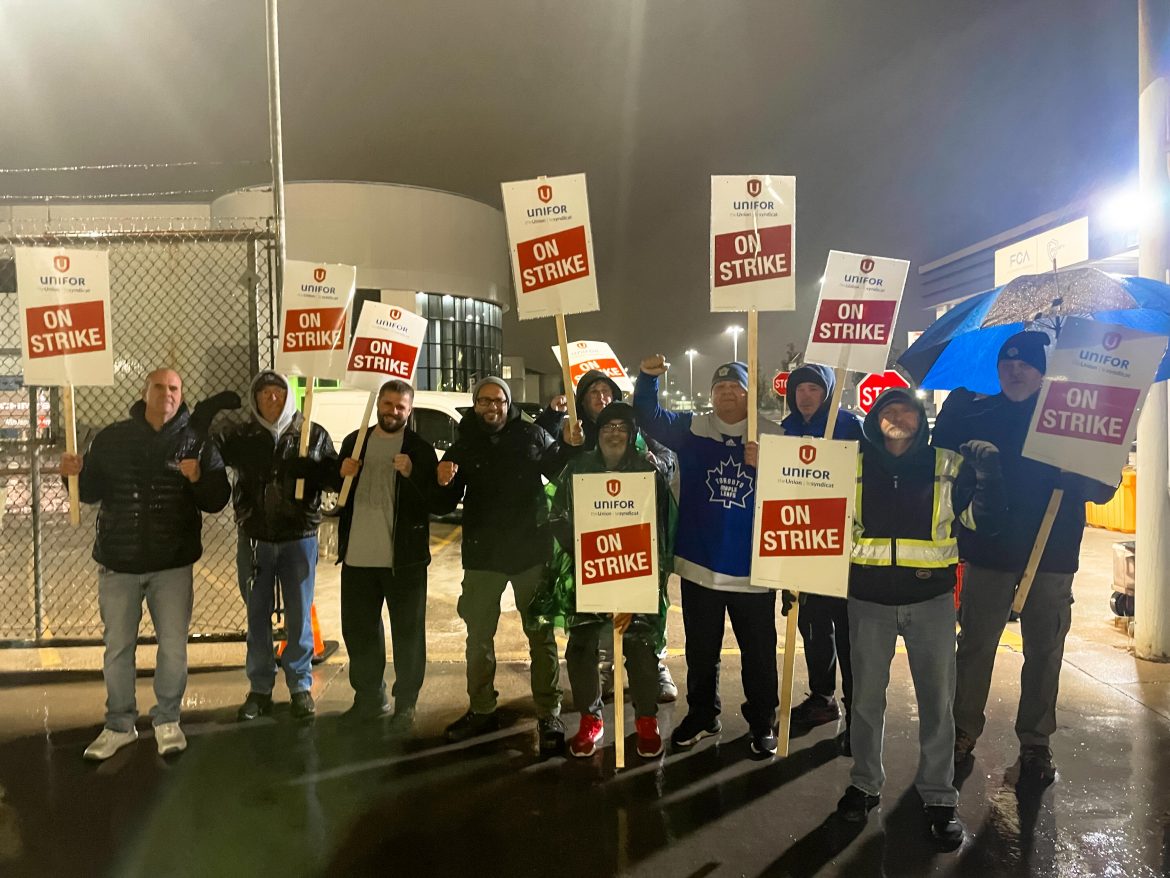Unifor, a Canadian labor union, announced the commencement of strikes at all Stellantis facilities in the country. Over 8,200 union members participated in the walkout after failing to reach a tentative agreement during labor contract negotiations.
The union’s key demands revolve around improved wages and pensions. Additionally, discussions have been centered on supporting the workforce’s transition into electric vehicle production at Stellantis’ Brampton Assembly Plant.
Ongoing Negotiations
Unifor stated that while progress has been made, negotiations will continue as they work towards a resolution.
Stellantis, the parent company of Chrysler, expressed its disappointment with the strike action and pledged to persist in bargaining until a mutually acceptable agreement is reached.
Separate from UAW Negotiations
It’s important to note that Unifor’s negotiations in Canada are distinct from the United Auto Workers (UAW) union’s negotiations in the United States. The UAW and Stellantis reached a tentative agreement for a new labor contract over the weekend.
Pattern Bargaining Approach
Unifor has been employing a “pattern bargaining” approach in its negotiations with automakers in Canada. The union successfully secured ratified agreements first with Ford and subsequently with General Motors.
Resolving Stellantis-Specific Issues
Unifor’s discussions with Stellantis also encompass issues specific to the automaker, including commuted value pension options and safeguards against outsourcing at the parts distribution centres.
Stellantis Canadian Operations
Stellantis operates several Canadian plants where it assembles popular vehicles such as the Dodge Charger, Challenger, and the Chrysler Pacifica minivan. While the Canadian operations of the Detroit Three are smaller than their U.S. counterparts, they house critical manufacturing facilities. The strikes have the potential to impact production and supply chains in the automotive sector.



